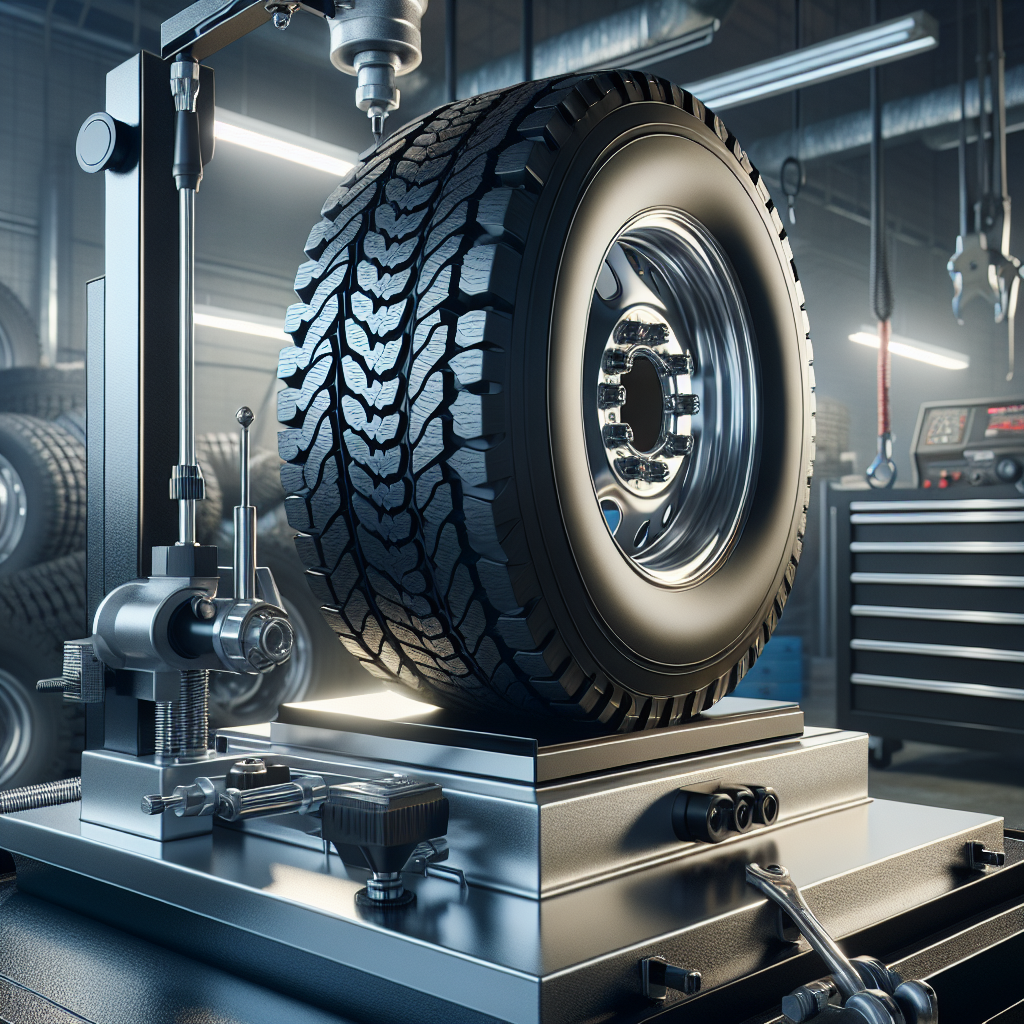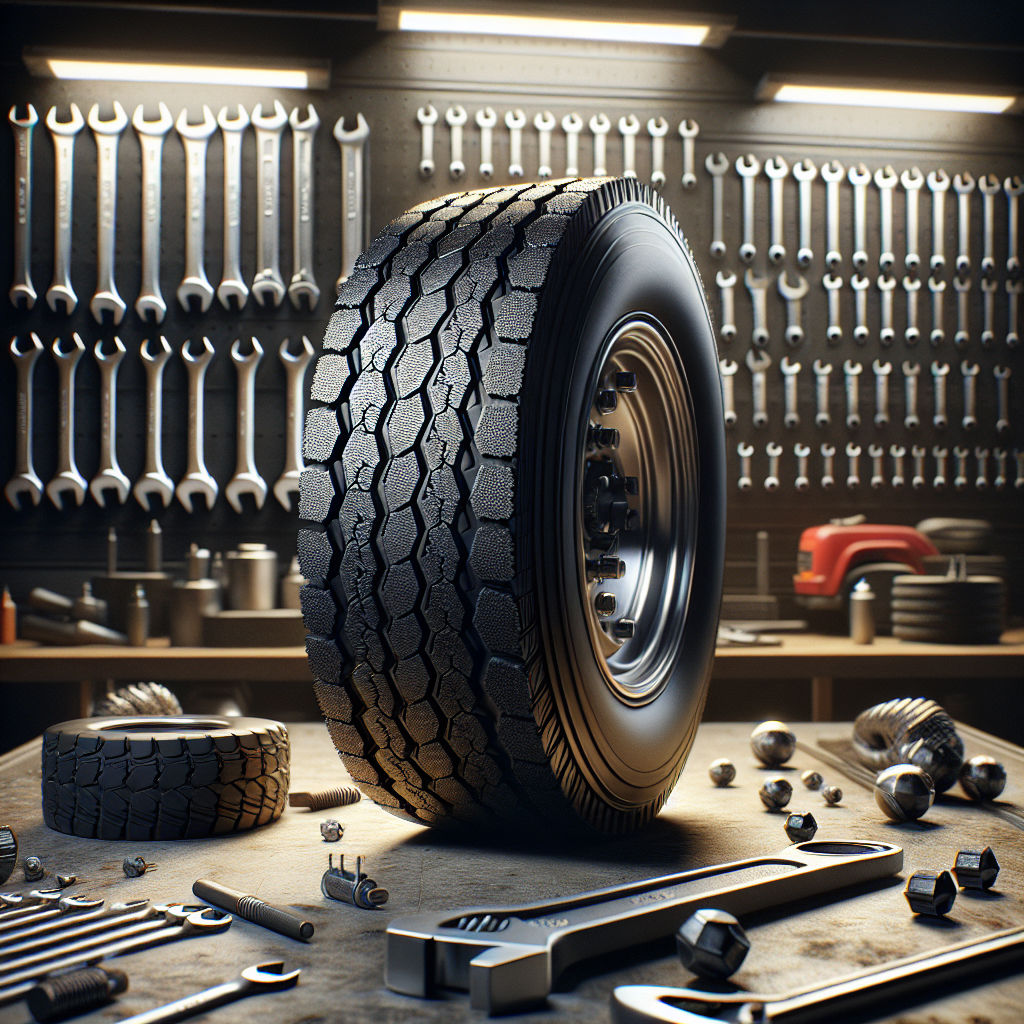

Proper tire maintenance is crucial for any vehicle, and trailers are no exception. Understanding the importance of tire balancing can significantly enhance the safety and performance of your trailer.
Tire balancing refers to the process of equalizing the weight distribution of the tire and wheel assembly. When tires are unbalanced, it can lead to several detrimental effects, including:
- Uneven Wear: Unbalanced tires can wear unevenly, leading to reduced tire life and the need for premature replacements.
- Handling Issues: Poorly balanced tires can affect the handling of the trailer, making it more difficult to control, especially during towing.
- Increased Vibration: An unbalanced tire can cause excessive vibration, which not only affects driver comfort but can also lead to structural damage over time.
- Fuel Efficiency: When tires are not balanced, it can negatively impact fuel efficiency, leading to higher operational costs.
When considering do trailer tires require balancing, the answer is a resounding yes. Regularly balancing your trailer tires not only promotes a smoother ride but also extends the overall lifespan of your tires.
Incorporating tire balancing into your maintenance routine is a simple yet effective way to ensure your trailer performs at its best. Tow with peace of mind, knowing that trailerwatchdog is standing guard.
Do Trailer Tires Need Regular Balancing?
When it comes to trailer maintenance, one common question arises: Do trailer tires need regular balancing? The answer is not only a matter of safety but also about optimizing performance and extending tire life.
Regular balancing of trailer tires is essential, especially considering the unique conditions under which trailers operate. Unlike standard vehicles, trailers often carry heavy loads and experience varying weight distributions, which can lead to imbalances over time.
Factors that influence the need for regular tire balancing include:
- Load Changes: Trailers are frequently loaded and unloaded, which can shift the weight distribution. This variability necessitates regular checks to ensure tires remain balanced.
- Road Conditions: Trailing on rough or uneven terrain can contribute to tire wear and imbalance. Regular balancing helps counteract any discrepancies caused by these conditions.
- Tire Wear: If you notice uneven wear patterns, it could be a sign that your tires are unbalanced. Addressing this issue promptly can prevent further damage.
Many experts recommend having your trailer tires balanced whenever you install new tires or after every significant load change. Additionally, during routine inspections, it’s wise to check for any signs of imbalance.
In conclusion, maintaining balanced trailer tires is a proactive approach to ensuring safety and enhancing the lifespan of your tires. Regular attention to this aspect of tire maintenance can save time, money, and prevent potential mishaps on the road.
Signs That Your Trailer Tires Require Balancing

Recognizing when your trailer tires require balancing is crucial for maintaining both safety and performance. There are several key signs that indicate an imbalance, and being vigilant can save you from potential accidents and costly repairs.
Here are some common signs that your trailer tires may need balancing:
- Vibration While Towing: One of the most noticeable indicators of unbalanced tires is persistent vibration felt through the towing vehicle. If you experience unusual shaking, it’s a strong sign that your tires need attention.
- Uneven Tire Wear: Inspecting your tires for uneven wear patterns can provide insights into their balance. If one side of a tire shows more wear than the other, balancing may be necessary to prevent further degradation.
- Pulling to One Side: If your trailer pulls to one side while towing, it may be a result of unbalanced tires. This can lead to steering difficulties and an increased risk of accidents.
- Noisy Tires: Excessive noise coming from the tires can also indicate an imbalance. If you notice an unusual humming or thumping sound, it’s time to investigate further.
Addressing these symptoms promptly is essential. Neglecting the need for tire balancing can lead to more significant issues, including reduced fuel efficiency and compromised safety.
Protect your trailer
By staying aware of these signs, you can take proactive measures to keep your trailer tires in optimal condition, ensuring a safer and smoother towing experience.
Benefits of Properly Balanced Trailer Tires

Maintaining properly balanced trailer tires offers numerous advantages that extend beyond just enhanced performance. By ensuring your tires are balanced, you can enjoy a range of benefits that contribute to safer towing and improved efficiency.
Here are some significant benefits of properly balanced trailer tires:
- Improved Safety: Balanced tires reduce the risk of blowouts and accidents caused by uneven wear. This enhances overall safety for both the trailer and surrounding vehicles on the road.
- Extended Tire Life: Properly balanced tires experience less friction and wear, leading to a longer lifespan. This means fewer replacements and lower costs over time.
- Better Fuel Efficiency: When tires are balanced, they roll more smoothly, which can improve fuel efficiency. This is especially important for those who frequently tow heavy loads or travel long distances.
- Smoother Towing Experience: Balanced tires contribute to a smoother ride with less vibration. This not only makes towing more comfortable but also helps protect the trailer’s cargo and structural integrity.
- Enhanced Handling: Proper tire balancing improves the handling of the trailer, making it easier to steer and maneuver. This is crucial for maintaining control, especially in challenging driving conditions.
Incorporating regular tire balancing into your maintenance routine can yield significant returns in terms of safety, performance, and cost savings. The importance of this practice cannot be overstated, as it directly impacts your towing experience.
How to Balance Your Trailer Tires Effectively

Balancing your trailer tires is a crucial maintenance task that can significantly enhance performance and safety. Understanding how to balance your trailer tires effectively can help you avoid the common pitfalls associated with uneven wear and improper handling.
Here are some essential steps to balance your trailer tires effectively:
- Gather the Necessary Tools: You will need a tire balancing machine, weights, and possibly a jack to lift the trailer. Ensure you have a reliable pressure gauge to check tire pressure as well.
- Check Tire Pressure: Before balancing, confirm that all tires are inflated to the recommended pressure. Under or over-inflated tires can affect the balance and performance.
- Remove the Tire: Safely lift the trailer using a jack and remove the tire from the axle. It’s essential to do this on a flat surface to avoid accidents.
- Use a Tire Balancing Machine: Place the tire on the balancing machine. This device will spin the tire and identify where weights need to be added to achieve a balanced state.
- Add Weights: Based on the machine's readings, attach the correct amount of weights to the tire. These weights will help counterbalance any heavy spots, ensuring even distribution.
- Recheck Balance: Spin the tire again on the balancing machine to confirm that it is now properly balanced. Make any necessary adjustments by adding or removing weights as needed.
- Reinstall the Tire: Once balanced, reinstall the tire onto the trailer and ensure all lug nuts are tightened to the manufacturer’s specifications.
By following these steps, you can effectively balance your trailer tires, ensuring a safer and more efficient towing experience. Regular maintenance and balancing can help you maximize the lifespan of your tires while enhancing overall performance on the road.
Expert Tips for Maintaining Trailer Tire Health

Maintaining your trailer tire health is essential for ensuring safety, efficiency, and longevity. With proper care, you can avoid costly repairs and minimize the risk of roadside breakdowns. Here are some expert tips for maintaining trailer tire health:
- Regular Inspections: Periodically check your tires for any signs of wear, cracks, or bulges. Look for uneven tread wear, which may indicate alignment issues.
- Monitor Tire Pressure: Keep your tires inflated to the manufacturer's recommended pressure. Both under-inflation and over-inflation can lead to premature wear and decreased fuel efficiency.
- Rotate Tires: Just like with vehicle tires, rotating your trailer tires can help ensure even wear. A general rule of thumb is to rotate them every 5,000 to 7,000 miles.
- Store Properly: If you plan to store your trailer for an extended period, consider elevating it off the ground to prevent flat spots from forming on the tires. Use tire covers to protect them from UV rays and harsh weather conditions.
- Keep Tires Clean: Regularly wash your tires to remove dirt and debris that can contribute to deterioration. Use a gentle cleaner and a soft brush to avoid damaging the rubber.
- Invest in Monitoring Technology: Utilizing a trailer monitoring system like TrailerWatchdog can provide real-time data on tire pressure and temperature, alerting you to potential issues before they become serious problems.
Implementing these tips will help keep your trailer tires in optimal condition, ensuring safer towing and extended tire life. Tow with peace of mind, knowing that trailerwatchdog is standing guard. Visit trailerwatchdog.com today to learn more about our innovative trailer monitoring solutions.




